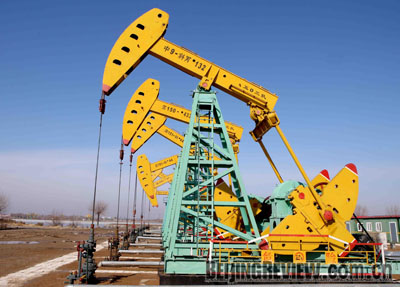| Numbers of the Week
110.5 million tons
China produced a total of 110.5 million tons of crude oil in the first seven months, up 2.2 percent from the year-earlier period. It imported 104.32 million tons of crude oil during this time.
100 billion yuan
The Ministry of Finance submitted an application to the State Council seeking a 100-billion-yuan ($16 billion) cut in value-added tax as of January 1, 2009.
|
TO THE POINT: The Coca-Cola Co. made an offer to buy China's biggest juice producer Huiyuan Group to enhance the global beverage giant's presence in the mainland's market. Mainland mutual funds, deterred by sluggish domestic stock market performance, reported huge losses of more than 1 trillion yuan ($146 billion). To ease domestic inflationary pressure, government authorities raised the special export tariff on certain fertilizers to 150 percent, and the central bank continued its efforts to curb excessive liquidity by issuing more bills. Sinopec Group came in No. 1 again on the country's list of top 500 companies. Construction on China's largest coal-power base officially started in Inner Mongolia.
By LIU YUNYUN |
Coca-Cola Looking for More

The Coca-Cola Co. intends to expand in China and further penetrate the nation's still beverage market through a proposed acquisition of Huiyuan Juice Group Ltd. of Beijing, the country's largest juice maker.
Coca-Cola announced on September 3 that it offered up to $2.4 billion in cash, or HK$12.2 ($1.56) per share, for Huiyuan. The amount was three times the closing price of the company's shares on September 2. Huiyuan's share price jumped 164 percent to HK$10.94 ($1.40) on the day Coca-Cola made the announcement. The offer is subject to approval by Chinese authorities. Financial analysts warned of a share price slump if regulators failed to approve the deal.
The Hong Kong-listed company has an overwhelming market share of more than 40 percent on the mainland. It had 640 million yuan ($94 million) in net profit last year.
Coca-Cola is adept at selling sparkling beverages, and acquiring Huiyuan would give it a strong presence in China's still beverage market. Coca-Cola already has received a nod of approval from three of Huiyuan's current shareholders, who together own approximately 66 percent of the Chinese company's shares.
"This acquisition will deliver value to our shareholders and provide a unique opportunity to strengthen our business in China, especially since the juice segment is so dynamic and fast growing in China," said Muhtar Kent, President and CEO of Coca-Cola, in the statement.
Gloomy Fund Performances
Chinese mutual funds lost a devastating 1.08 trillion yuan ($158 billion) in the first half of this year.
A report issued by TX Investment Consulting Co. Ltd. on August 29 tracked the overall performance of 364 mutual funds managed by 59 companies and found that equity funds suffered the biggest cumulative loss of up to 695.4 billion yuan ($102 billion). Hybrid funds lost 292.4 billion yuan ($43 billion) and closed-end funds lost 67.6 billion yuan ($9.9 billion).
Principal guarantee funds and bond funds did not suffer as much and had a cumulative loss of 3.2 billion yuan ($468 million) in the first half.
Money market funds were the only profitable funds in the first half, making 1.3 billion yuan ($190 million).
TX Investment Consulting said the first-half losses were record highs in the history of fund management. The stock market tumble was the biggest culprit. The company believes that if stock markets turn bullish in the next half of the year, fund managers will be able to recover some of their losses.
| 